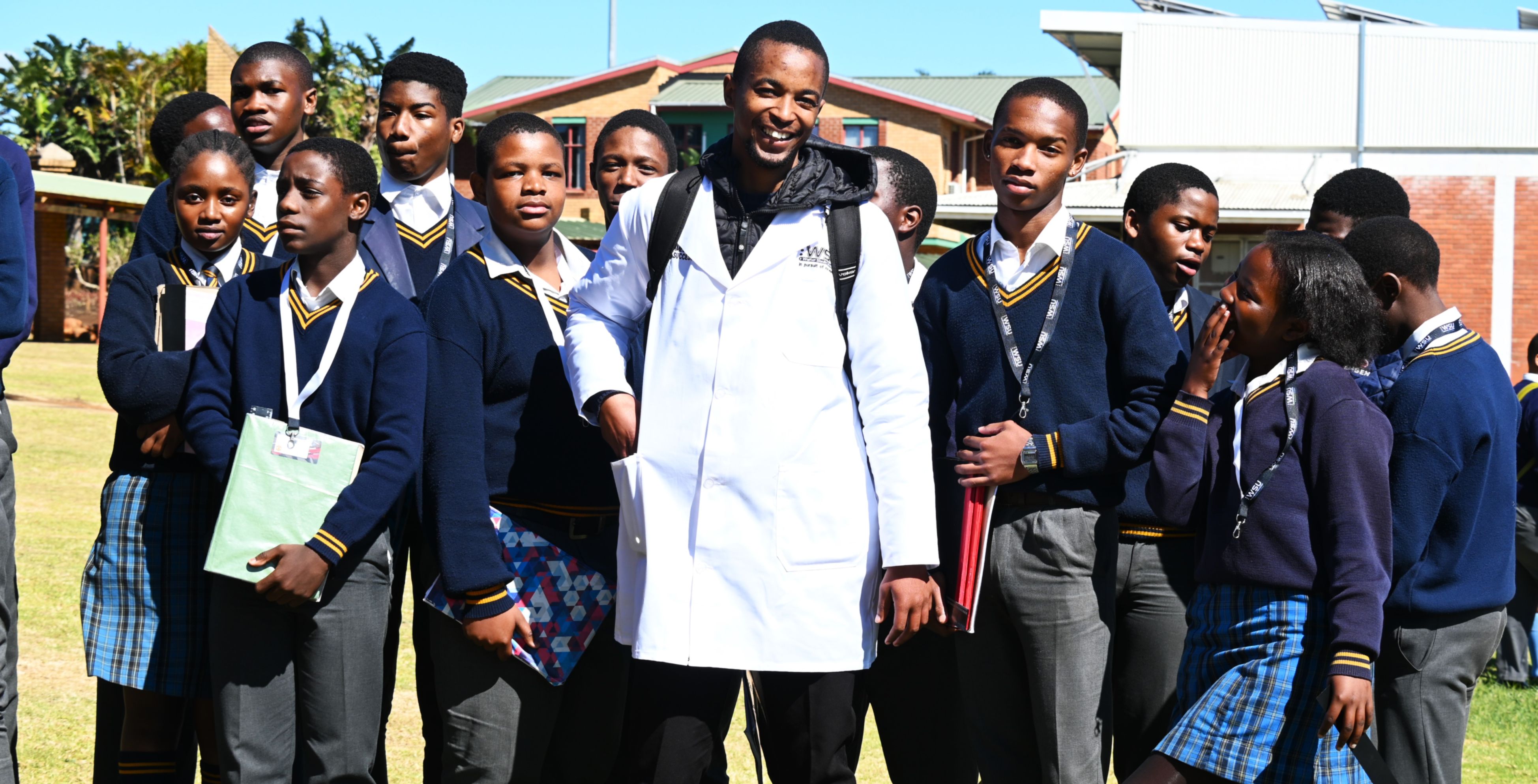FROM WOUND HEALING TO RENEWABLE ENERGY – A WSU POST-DOCOTRAL CANDIDATE’S TRANSITION

The inadequate treatment of wounds in one rural location outside Qonce had such a profound impact on one WSU academic that, years later, he would go on to obtain a doctoral degree premised on the investigation of chemistry in wound treatment.
Growing up a typical inquisitive, lively, energetic, and adventurous boy in the rugged terrain of the rural village of kwaRayi outside Qonce, WSU post-doctoral candidate and part-time lecturer, Dr Xhamla Nqoro witnessed many an abrasion, laceration, and puncture wound, which often went untreated and mistreated during his formative years.
In the year 2023, at the tender age of 30, Nqoro was the youngest PhD-recipient at the University of Fort Hare, after obtaining his doctoral degree in chemistry under a research thesis titled “Development and In Vitro biological studies of polymer-based wound dressings with a high haemostatic ability for the management of wounds”.
“I chose to pursue chemistry in wound treatment because of my experiences growing up in rural areas where access to proper medical care was limited. I often saw small wounds turn into serious problems, especially for people with diabetes. As kids, we would use dust or dirt to stop bleeding, not realizing the risks of bacterial invasion and infections,” said Nqoro.
After learning that chemistry could be applied to wound healing, his interest deepened considerably in trying to understand the wound healing process and developing materials that could be easily accessible and could be used without professional training.
However, things would swiftly and drastically change for the young protégé following his winter graduation last year as he would, mere months later, change course and pursue his postdoctoral studies in the field of renewable energy and energy storage under the keen eye of his mentor Dr Raymond Taziwa in the university’s Analytical Chemistry department.
“I found that I had to seek greener pastures and I had to change the environment I’m in so I can evaluate other aspects of chemistry. While I was waiting for my PhD to be confirmed, I got a research assistant position at WSU under Dr Taziwa, and during that time is when I decided to look into renewable energy. Towards the end of my contract, I gained great interest in what Dr Taziwas was doing regarding renewable energy, and thus I asked him to take me on as a postdoctoral candidate,” said Nqoro.
He said his research with Taziwa looks at developing cooling refrigerants using bio-polymers extracted from agricultural waste/biomass, specifically sugarcane bagasse, and because South Africa is one of the largest sugar producers, tons of waste is produced and as a result, the duo takes the waste and extracts biopolymers and use these to develop refrigerants.
Nqoro said the refrigerants would be designed to hold temperature at a specified range for a longer time so they can be applied as refrigerants off-grid, most likely in rural areas that have scant and unreliable electricity supply.
For all his breakthroughs, achievements, and tribulations, Nqoro’s life could’ve turned out a whole lot differently, most likely underwhelming, had it not been for his resilience and fortitude after he failed mathematics during his final matric exams in 2011.
“My difficulty with maths became a major hurdle when I passed matric with a symbol B, but only achieved a level two in maths. This meant I couldn’t enter university right away, and I had to take an unplanned gap year,” he said.
By Thando Cezula
